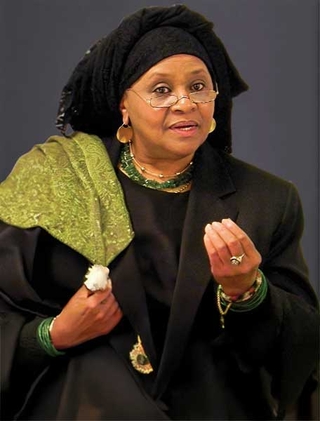
Aisha Al-Adawiya
Aisha Al-Adawiya is honored as the “Queen Mother of Harlem.” During her 30 years at the Schomburg Center, she curated many renowned collections, including the Malcolm X papers, and is a founding member of the Malcolm X Museum. Al-Adiwya is also an internationally acclaimed human rights activist, having served on numerous boards related to U.S. Black and global Islamic community interests, including the Interfaith Center of New York and New York Jobs With Justice. In 1994, she founded Women in Islam, Inc., which raises awareness and funds for global conflicts impacting Muslim women, with a focus on peacebuilding. Al-Adiwya retired from the Schomburg in 2021, and her extraordinary personal archive is now housed at The Burke Library at Union Theological Seminary. She has received numerous awards, including the 2017 Clara Lemlich Award for Social Activism, the Council on American-Islamic Relations’ 2018 Lifetime Achievement Award, and the 2022 Outstanding Humanitarian Award.
Panelists
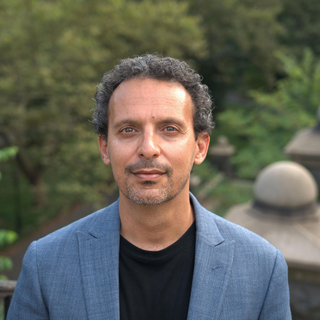
Hisham Aidi
Hisham Aidi is a political scientist and filmmaker who teaches international relations at Columbia University’s School of International and Public Affairs. He is the author and editor of several works including Black Routes to Islam, and Rebel Music: Race, Empire and the New Muslim Youth Culture, winner of the American Book Award. He was a researcher for Manning Marable’s Malcolm X Project (2004-2011), and is currently academic adviser to the Malcolm X & Dr Betty Shabazz Memorial and Educational Center.
Aidi is the recipient of the Carnegie Scholar Award (2008), the Hip Hop Scholar Award (2015) and the Open Society Foundations’ Equality Fellowship (2020). He is director of the feature film A Thousand and One Berber Nights (2023) which premiered at the New York African Film Festival. He also wrote and produced two short documentaries, Malcolm X and the Sudanese (2020) and Sister Aisha: Queen Mother of Harlem (2024).
Nadia Alahmed
Nadia Alahmed is a Palestinian scholar-activist and an Assistant Professor of Africana Studies at Dickinson College. Her research interests include Black radical thought and politics, Black internationalism, Black Islam, critical Hip Hop studies and historical, political and cultural connections between Black America and the Middle East. Her book “Black Intifada: A Century of Black and Palestinian Solidarity” will come out next year. She is currently working on a book that explores the lives, identities and experiences of Afro-Palestinians and ehtnoracial formations of Afro-Arabs in the Middle East and North Africa.
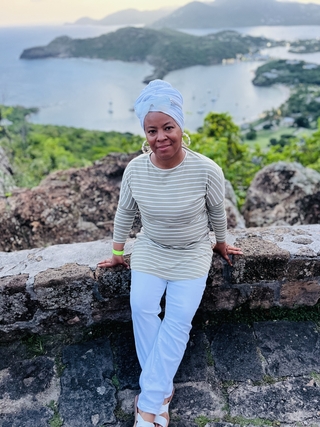
Donna Auston
Donna Auston (PhD) is an anthropologist, writer, and public intellectual, whose research interests include race, gender, religion, policing, protest, digital ethnography, and Islam in America. Her dissertation is an analysis of Black U.S. Islam and spritual protest in the post-Ferguson era. Dr. Auston has published journal articles and book chapters on the historical contributions of African American Muslims in the arts, culture, and social justice movements, the intersections of Islamophobia and anti-Blackness, gendered Islamophobia, Black Islam and U.S. politics, race, religion, and gender in digital spaces, and other related topics. Beyond traditional academic publishing, over the years, her work has been published in and covered by various national and international media outlets, including The Huffington Post, NBC News, The Washington Post and the New York Times. She has been interviewed for a number of documentary projects, including Kaia Shivers “Orisa in the Ghetto: The Black Divine,” Henry Louis Gates’ “The Black Church: This is Our Story, This Is Our Song, and Ken Burns “Muhammad Ali.” Dr, Auston currently serves as Senior Program Officer at the Wenner-Gren Foundation.
Hamzah Baig
Hamzah Baig is a historian of the nineteenth and twentieth century Middle East and Africa. His teaching and research interests focus on social movements, Third World Marxism, settler colonialism, and postcolonial state formation. Hamzah received his Ph.D. in History from Yale University in December 2023 and is currently a Chancellor’s Postdoctoral Fellow at the University of California, Santa Barbara.
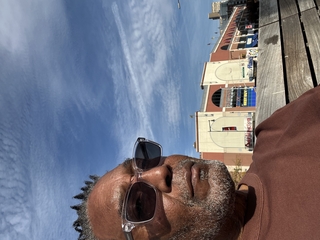
Dhoruba Bin-Wahad
Dhoruba Bin-Wahad was a leading member of the New York Black Panther Party, a Field Secretary of the BPP responsible for organizing chapters throughout the East Coast, and a member of the Panther 21. Arrested in June 1971, he was framed as part of the illegal FBI Counter Intelligence Program (COINTELPRO) and subjected to unfair treatment and torture during his nineteen years in prison. During Dhoruba’s incarceration, litigation on his behalf produced over 300,000 pages of COINTELPRO documentation, and upon release in 1990 he was able to bring a successful lawsuit against the New York Department of Corrections for their criminal activities. Living in both Ghana and the
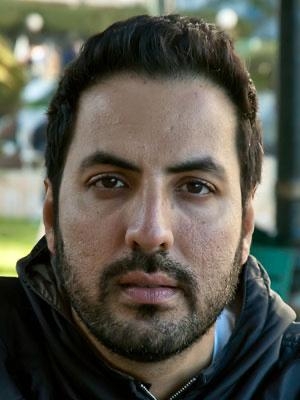
Sohail Daulatzai
Born at the Af-Pak border, Sohail Daulatzai is a writer, curator and professor, and is the founder of Razor Step, an L.A. based media lab. He is the author of Fifty Years of “The Battle of Algiers”: Past as Prologue, as well as Black Star, Crescent Moon: The Muslim International and Black Freedom beyond America and co-editor of Born to Use Mics, a literary remix of Nas’s album Illmatic. He is the curator of the celebrated exhibit Return of the Mecca: The Art of Islam and Hip-Hop, and editor of the limited edition, companion commemorative book of the same name, which includes an interview with Yasiin Bey (aka Mos Def) and an essay by Chuck D, the work of Jamel Shabazz, Ernie Paniccioli, and others, as well as album cover art, photography, flyers and other ephemera. He has written liner notes for the Sony Legacy Recordings Release of the 20th Anniversary Deluxe Box Set of Rage Against the Machine’s self titled debut album, the liner notes for the DVD release of Freestyle: The Art of Rhyme and the centerpiece in the museum catalog Movement: Hip-Hop in L.A., 1980’s – Now, and his other writings have appeared in The Nation, Counterpunch, Al Jazeera, Souls, Wax Poetics, and Artbound, amongst others.
He also curated the exhibit Histories Absolved: Revolutionary Cuban Poster Art and the Muslim International, which showcased the work of the Havana-based OSPAAAL (Organization of Solidarity with the People of Africa, Asia and Latin America) and their political graphic art of the 1960’s, ‘70’s and ‘80’s with Palestine, Egypt, Syria, Afghanistan and other Muslim majority countries. He is the founder of Groundings, a conversation series that has included Yasiin Bey, Immortal Technique, Chuck D, Rosa Clemente, dream hampton, Brother Ali, Robin D.G. Kelley and Jasiri X.
He has been awarded and received funding from the University of California President’s Postdoctoral Fellowship, the Paul Robeson Fund for Independent Media, the University of California “Public Partnership in the Humanities,” the Doris Duke Fund, and the City of Los Angeles Department of Cultural Affairs, amongst others. He has been invited to present his work throughout the world at academic conferences, universities, art institutions, galleries, and literary festivals, including at Harvard, Princeton, Yale, Georgetown, Duke, Columbia, University of Chicago, Berkeley, Stanford, Oxford University, SOAS (in London), EHESS (in Paris), American University Beirut, the Paris Hip-Hop Festival, the William Grant Still Art Center, the Asian American Writers Workshop, the Muslim Protagonist Festival, the Grammy Museum, and elsewhere. He teaches in the Department of Film and Media Studies, the Department in African American Studies, and the Program in Global Middle East Studies at the University of California, Irvine.
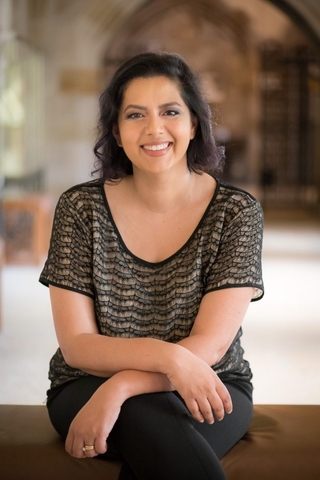
Zareena Grewal
Zareena Grewal is a historical anthropologist and a documentary filmmaker whose research focuses on race, gender, religion, nationalism, and transnationalism across a wide spectrum of American Muslim communities. Her first book, Islam is a Foreign Country: American Muslims and the Global Crisis of Authority (NYU 2013), is an ethnography of transnational Muslim networks that link US mosques to Islamic movements in the post-colonial Middle East through debates about the reform of Islam. Her first film, By the Dawn’s Early Light: Chris Jackson’s Journey to Islam (Cinema Guild 2004), examines the racialization of Islam and the scrutiny of American Muslims’ patriotism long before September 11 2001. Her forthcoming book, titled “Is the Quran a Good Book?”, combines ethnographic and cultural studies analyses with historical research to trace the place of the Islamic scripture in the American imagination, particularly in relation to national debates about tolerance. She has received awards for her writing and research grants from the Fulbright, Wenner-Gren and Luce Foundations.
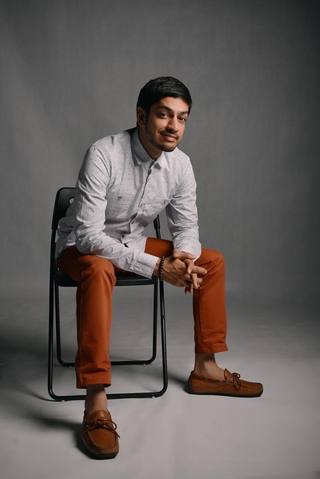
Asad Ali Jafri
Asad Ali Jafri is a cultural producer, community organizer and interdisciplinary artist. Using a grassroots approach and global perspective, Asad connects artists and communities across imagined boundaries to create meaningful engagements and experiences. Asad has over two decades of experience honing an intentional and holistic practice that allows him to take on the role of artist and administrator, curator and producer, educator and organizer, mentor and strategist. Asad is a co-founder and facilitator of SpaceShift, a collaborative collective of artists, creatives and change-makers experimenting with the ways in which we work, live and create. The collective is currently working on Aao Mil Baithen, a creative placemaking arts initiative on Chicago’s Devon Avenue that launched starlight, a temporary community arts space, in the fall of 2022.
From 2018 - 2020, Asad was based at Shangri La Museum of Islamic Art, Culture & Design (part of the Doris Duke Charitable Foundation) in Honolulu as Curator of Programs where he built a community-centered residency program for artists, thought leaders and creatives. As President of Sukoon Creative from 2013 - 2018, he produced cultural exchanges and programs in the UK, Malaysia, Lebanon, South Africa and a multi-year street art project in Pakistan. Prior to that, Asad was the Director of Arts & Culture at IMAN in Chicago where he directed the Takin’ It to the Streets Festival and Community Cafe series. Over the years, Asad has worked across five continents in many countries including Morocco, Algeria, Kazakhstan, Brazil, UAE, Italy and Belgium.

Maryam Kashani
Maryam Kashani is a filmmaker and associate professor in Gender and Women’s Studies and Asian American Studies at the University of Illinois at Urbana-Champaign and is an affiliate with Anthropology, Media and Cinema Studies, and the Center for South Asian and Middle Eastern Studies. Her book Medina by the Bay: Scenes of Muslim Study and Survival (Duke University Press, 2023) is an ethnocinematic examination of how multiracial Muslim communities in the San Francisco Bay Area survive and flourish within and against racial capitalist, carceral, and imperial logics. Her films and video installations explore the relationships between physical landscapes and the material and spiritual histories and forces that emerge with and against them and have been shown at film festivals, universities, and museums internationally. Kashani is in the leadership collective of Believers Bail Out, a community-led effort to bailout Muslims in pretrial and immigration incarceration towards abolition.
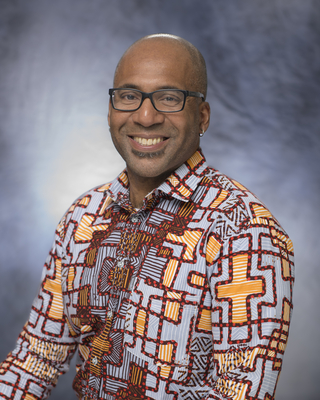
Erik McDuffie
Erik S. McDuffie is an award-winning, interdisciplinary historian who teaches at the University of Illinois at Urbana-Champaign. His research interests include Black internationalism, Black nationalism, Black radicalism, Black feminism, urban history, sexualities, the Midwest, and Global Africa. His first book Sojourning for Freedom: Black Women, American Communism, and the Making of Black Left Feminism (Duke University Press, 2011) won the Letitia Woods Brown Book Prize from the Association of Black Women Historians, and the Wesley-Logan Prize in African Diaspora History from the American Historical Association and the Association for the Study of African American Life and History. His latest book The Second Battle for Africa: Garveyism, the U.S. Heartland, and Global Black Freedom (Duke University Press, 2024) establishes the importance of the Midwest to twentieth-century global Black history, internationalism, and radicalism through Garveyism. A sixth generation African American midwesterner, his family hails from the United States, Canada, and St. Kitts.
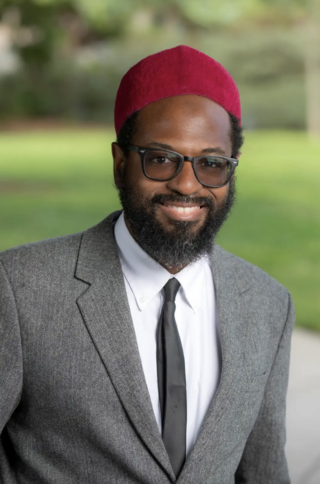
Rasul Miller
Dr. Rasul Miller is Assistant Professor in the Department of History at University of California, Irvine. Dr. Rasul Miller’s work explores the histories of Black Muslim communities in the Atlantic world, Black Internationalism, Black radicalism and its impact on social and cultural movements in the twentieth century U.S., and West African intellectual history. Dr. Miller’s current book project, Black World Revelation: Islam, Race and Radical Internationalism in Twentieth Century New York City, examines the Black internationalist origins of early twentieth-century Black orthodox Muslim congregations in and around New York City, and the cultural and political orientations that characterized subsequent communities of Black Muslims in the U.S. who built robust, transnational networks as they actively engaged traditions and communities of Muslims on the African continent.
Martin Nguyen
Martin Nguyen is Professor of Islamic Studies at Fairfield University. His work revolves around Muslim theology, ethics, spirituality, Qur’anic studies, and the intersection of race and religion. He is currently writing on Islamic responses to global mass displacement and modern structural racism. Among his books is “Modern Muslim Theology: Engaging God and the World with Faith and Imagination,” which presents a contemporary theology rooted in the religious imagination while engaging with voices from the tradition like al-Ghazālī and Malcolm X. He also edited and revised with the late Imam Sohaib Sultan “An American Muslim Guide to the Art and Life of Preaching.” Alongside his publications, he has facilitated several scholarly initiatives, including the “Constructive Muslim Thought and Engaged Scholarship” seminar at the American Academy of Religion and the “Islamic Moral Theology in Conversation with the Future” project. More about his work can be found at https://drmartinnguyen.com
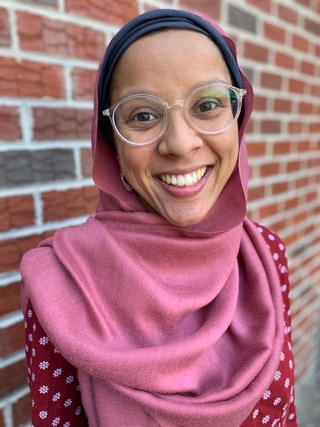
Samiha Rahman
Dr. Samiha Rahman is an Assistant Professor of Human Development at California State University Long Beach. She holds a joint Ph.D. in Africana Studies and Education from the University of Pennsylvania. Her scholarship and teaching examine how young people and their families engage race, religion, and education to achieve justice and liberation. Her research has garnered supported from the Mellon Foundation, the Institute of Citizens and Scholars, the American Council of Learned Societies, the Spencer Foundation, the National Academy of Education, and the Fulbright-Hayes.
Her first book, Black Muslim Freedom Dreams: Islamic Education, Pan-Africanism, and Collective Care, is under contract with NYU Press. Based on more than a decade of ethnographic engagement, the book tells the stories of a multi-generational community of Black Muslims in the Tijani Sufi tariqa who live, learn, and strive for liberation between the U.S. and Senegal. Her other ongoing research project focuses on the experiences and world-making practices of Black Muslim college students in the U.S. It examines how they sustain joy and resistance in the face of intersectional marginalization.
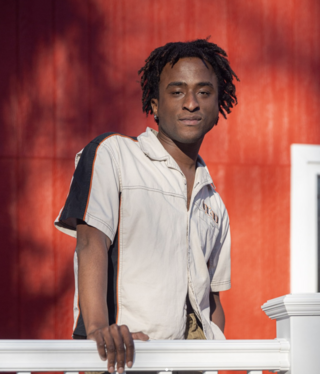
Prince Shakur
Prince Shakur is a multi-medium artist, educator, content creator, and organizer committed to exploring queer Black histories and radical narratives through storytelling. His debut memoir, When They Tell You To Be Good (Tin House Books, 2022), blends his queer upbringing, Black anarchism, masculine violence, and global travels in homage to James Baldwin’s legacy. Since 2014, Shakur has combined grassroots organizing with cultural journalism, contributing to outlets like Teen Vogue and Commune Magazine, while engaging in movements such as Black Lives Matter and Standing Rock. He co-hosts The Dugout, a podcast centering Black anarchist news and perspectives. Across social media and his creative work, Shakur delves into Black history, anti-capitalism, writing, and more. He currently teaches English at Lehman College.
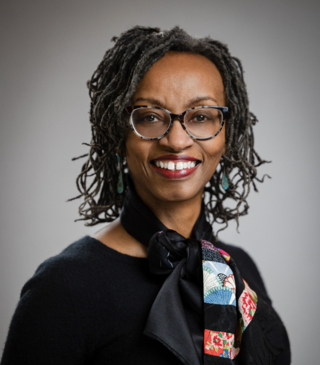
Ula Taylor
Ula Taylor is the 1960 Chair of Undergraduate Education and the H. Michael and Jeanne Williams Chair of African American Studies. She is the author of The Promise of Patriarchy: Women and the Nation of Islam, The Veiled Garvey: The Life and Times of Amy Jacques Garvey, co-author of Panther: A Pictorial History of the Black Panther Party and The Story Behind the Film and co-editor of Black California Dreamin: The Crisis of California African American Communities.
Her articles on African American Women’s History and feminist theory have appeared in academic journals and edited volumes. In 2013 she received the Distinguished Professor Teaching Award for the University of California, Berkeley and is the second Black woman in the history of the University to receive this award. She is most proud, however, of her former students who are transforming how we understand Black Studies.

Organizer Tone
Tone is a strategic organizer with a broad scope of influence, working at local, national, and international levels. She holds the position of adjunct professor in Managerial Accounting and Project Management, and dedicates much of her time to developing analytical data models, engaging in scholarly reading, cultivating her garden, and providing tutoring in S.T.E.A.M. disciplines. Additionally, Tone identifies as a ‘Malcolmite’ (X), actively serving as an advocate for justice.
C. S’thembile West
Harlem, New York native, Dr. C. S’thembile West, Professor Emerita, African American and Women’s Studies, Western Illinois University, worked four decades in Education. Her multifaceted career spanned not only Physical Education and professional modern dance performance, but also Jazz music, dance and theatre criticism in The Amsterdam News, Jazz Spotlite News, The Philadelphia Inquirer and Attitude the Dancers’ Magazine.
After retiring from dance performance, and a Fulbright Scholar experience in the Southern Africa region - Zimbabwe, Botswana and Malawi - in 1991, she relocated to complete Temple University’s Ph.D. program in African American Studies. In 1994, she graduated and created Harmony Productions to facilitate sharing her expertise in public arenas in the U.S. and abroad. Diverse articles have appeared in The Black Scholar, FEMSPEC, Journal of Comparative Family Studies, Journal of Feminist Studies in Religion, and NAACP Crisis Magazine. The text, Nation Women Negotiating Islam: Moving Beyond Boundaries in the Twentieth Century was published May 2023, Roman & Littlefield Publishers, Inc.
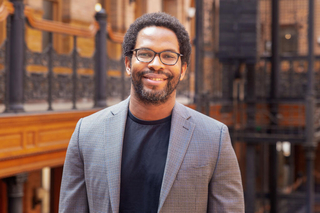
Alden Young
Alden Young is an associate professor of History and Global Affairs at Yale University. He is a political and economic historian of Africa and the Middle East. His first book, Transforming Sudan discusses the role of the new science of economic development in the transition of Sudan from an imperial possession to a newly independent state. Alden is currently at work on two new books. The first is tentatively entitled The Afrabians and it uses the writings of the Sudanese scholar Muhammad Abu al-Qasim Hajj Hamad to tell the story of the relationship between northeast Africa and the Arab Gulf states from the 1970s until the early 2000s. Alden is also writing a book on post-partition conflicts in the Horn of Africa (e.g., Sudan-South Sudan and Ethiopia-Eritrea) with the political scientist Michael Woldemariam. Alden recently completed a project on the perceptions and impacts of climate change in the countries that form the Red Sea Basin with Nathalie Puetz of NYU Abu Dhabi and Dheaya Alrousan of the Hashemite University in Zarqa, Jordan. This collaboration with scholars in nine countries resulted in the creation of Red Sea Net, a digital resource. To learn more about the gestation of this project please read the following article in Items.
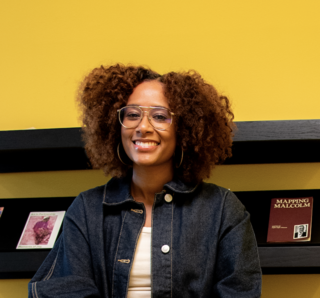
Najha Zigbi-Johnson
Najha Zigbi-Johnson is a writer, educator, and cultural curator. Her Harlem-based practice sits at intersections of the built environment, contemporary Black art, and social movement history. She is the editor of Mapping Malcolm, a publication that brings together artists, transnational community leaders, and scholars to explore the politics of Black space-making. Najha formerly served as the Director of Institutional Advancement at The Shabazz Center, and currently teaches political science and architecture at The City College of New York. She has written for New York Magazine, Essence, Artforum, SEEN Journal, White Cube Gallery and more. Najha holds a BA in Religious Studies from Guilford College and a Master of Theological Studies from Harvard Divinity School, where she graduated as a Presidential Scholar. Najha also served as a Fellow at the Graduate School of Architecture, Planning and Preservation at Columbia University and is currently a Create Change Fellow at the Laundromat Project.
Conveners
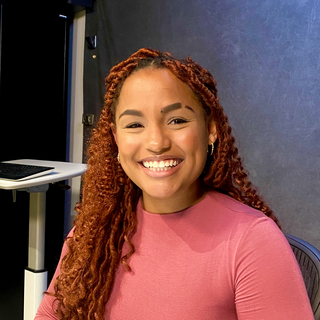
Iman AbdoulKarim
Iman AbdoulKarim is a PhD candidate in the Departments of Religious Studies and African American Studies at Yale University. Her research interests include Islam in America, African American religious history, U.S. Black nationalism, secularism, and Black feminist theory. Her dissertation, Knowing Otherwise: Self-Determination in U.S. Black Muslima Thought, is an intellectual history of Black nationalism that examines the feminist and Islamic modes of knowing adopted by Muslima thinkers to determine for themselves the possibilities of their existence and that of their people. She spends a lot of time thinking about survival, visions of other worlds, secularism, who gets to know what, and the ambiguities between what is considered religious, radical, and insane.
Iman is also a dedicated public scholar and a co-host of Name It!, an encyclopodia dedicated to breaking down critical race and feminist theory for listeners.
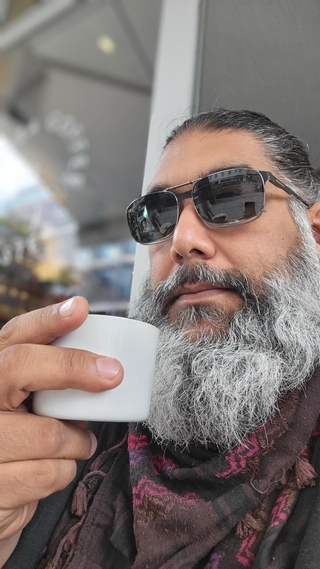
Abdul-Rehman Malik
Abdul-Rehman Malik is an award-winning journalist, educator, cultural organizer. His over three decades of work at the intersection of faith, culture and social change has spanned the globe – Pakistan, Sudan, Indonesia, Tunisia, Mali, The Netherlands, the UK and beyond. Abdul-Rehman is a Lecturer at Yale Divinity School and (sometimes) the Yale Jackson School for Global Affairs. He also directs a student-facing leadership program at Yale’s Dwight Hall Center for Social Justice and Public Service. Abdul-Rehman is a founder of the Caravanserai Collective, whose Cerita Caravan program has provided narrative strategies and training to storytellers and civil society actors to support vital interfaith and inter-cultural peacebuilding work in conflict and post-conflict contexts around the world. A veteran contributor to BBC Radio and other international media, he is also host of the Aga Khan Museum’s popular podcast “This Being Human”.